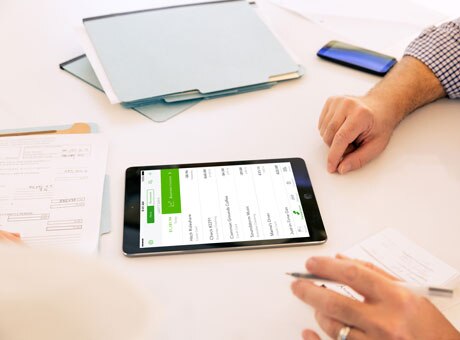The Small Business Job Credit lowers your small business’ employment insurance (EI) premium rate for tax years 2015 and 2016. In 2017, a seven-year break-even rate-setting mechanism went into effect, designed to increase the stability of premium rates and help ensure they’re only as high as necessary. Under this mechanism, annual rate increases are limited to $0.05, and the government publicizes upcoming rate increases earlier, on September 14 of each year. As of 2018, the Small Business Job Credit is expired, but you can still file for this credit if you’re paying back taxes.

What You Need to Know About the Small Business Job Credit
Am I Eligible for the Small Business Job Credit?
The CRA automatically establishes your business’ eligibility for this credit for tax years 2015 and 2016 based on the T4 information returns the business filed for those years. After recalculating the company’s EI tax liability using a lower rate, the CRA issues it a refund for the difference. Despite the automatic features of this job tax credit, it’s a good idea to know the rules about tax treatment of the credit and how T4 filing deadlines apply.
What is the Criteria for Receiving this Credit?
The Small Business Job Credit is available to most businesses, registered charities, and nonprofit organizations, but it doesn’t apply to employee-paid premiums. Your business is automatically eligible if it meets all of the following conditions for tax years 2015 or 2016:
- You deducted EI premiums from payments made to your employees, or paid EI premiums on behalf of certain types of employees, including fishers, barbers, hairdressers, and some drivers of taxis and other passenger-carrying vehicles, and remitted all EI tax you collected to your payroll program account.
- You reported income and EI deductions on filed T4 slips.
- The total of employer EI premiums you paid under all of your payroll deduction (RP) accounts in 2015 and/or 2016 was $15,000 or less. In making this calculation, the CRA adds up all of the EI premiums, an entity paid under all of its RP accounts registered under your Business Number. If the CRA issues a refund, it remits a proportional share to each RP, according to how much EI tax each RP paid.
Registered charities and nonprofit organizations are only eligible to receive this credit if all of the EI premiums they paid in 2015 and 2016 total no more than $15,000.
Under this credit, you must also report any refunds you received as income as well as the year you received the refund. The Canadian Revenue Agency (CRA) disallows the Small Business Job Credit for any entities that submit their original 2015 T4 returns or any changes to them after Jan. 1, 2019, or after Jan. 1, 2020, for tax year 2016.
Calculating the Job Credit
Using EI information from the T4 slips you filed with their 2015 and 2016 T4 information returns, the CRA automatically recalculates your credits and refunds the difference. For example, you paid less than $15,000 in EI premiums, the reduced rate is $1.88 per $100 insurable earnings rather than the $1.60 you paid. These rates vary, depending on the total amount of premiums remitted.
Special rates apply to EI premiums paid by Quebec business owners. To issue the credit, the CRA first applies any refund to outstanding balances on your RPs. It then refunds any amount greater than $2. The CRA makes it easy for you to amend, cancel, or file additional T4 slips. It automatically recalculates credits after processing any of those changes.
There are many other tax credits you may qualify for as a small business owner in Canada. Turn to QuickBooks Online to learn about these credits. QuickBooks Online can also help you maximize your tax deductions. Start keeping more of what you earn today.


